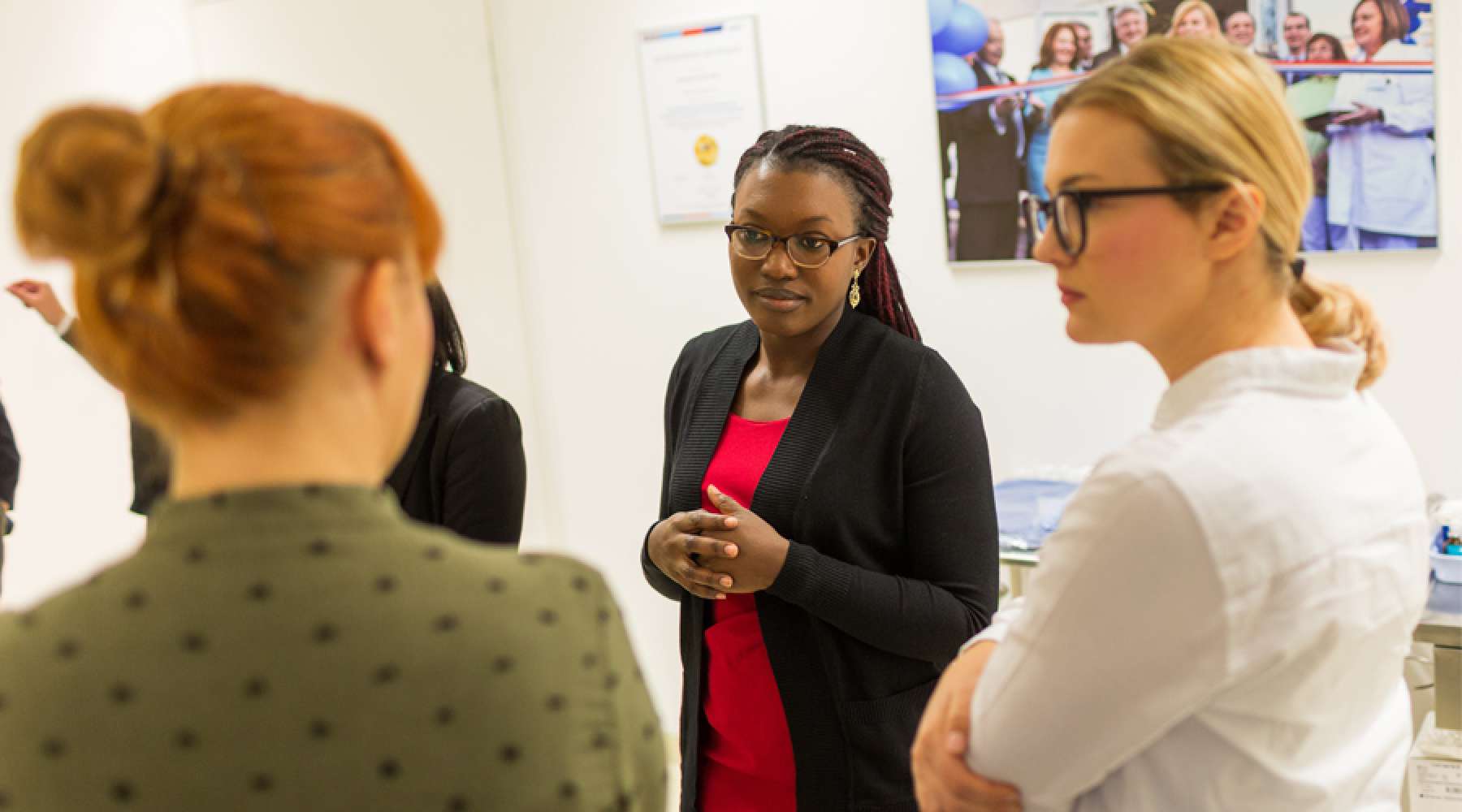

We at Tuck care a lot about reducing stress and anxiety in the application. This includes being transparent about the four criteria we look for in strong Tuck applicants.
Tuck students are smart, curious, and engaged.
Tuck students are accomplished, impactful, and principled.
Tuck students are aware, ambitious, and purposeful.
Tuck students are encouraging, collaborative, and empathetic.
No one criterion is more important than the other three. I’d like to explore how you can demonstrate our accomplished criterion so that we can see it in your application.
The first component of this criterion is your outcomes. At Tuck, we seek candidates who are excellent on the job and impactful outside it. Your resume offers an introductory overview to an admissions reader and is the only part of the application your interviewer sees—and listing your professional positions and educational history is just the beginning. Include promotions, awards, and increased responsibilities that help us see your progression. List results and wins that reflect good performance and clear achievements. If you’ve been involved in extracurricular activities at work or school, professional networking groups, community organizations, entrepreneurial ventures or other meaningful personal pursuits, tell us about your level of involvement, your responsibilities, and the results you achieved. You likely can’t fit everything you’ve achieved onto one page—which is the length we prefer—so you will need to use your good judgment to determine how to present and organize the highlights. We also strive to enroll a class with diverse industry, functional, and extracurricular experience, so we calibrate our assessments of your outcomes relative to expectations.
Your application provides additional context beyond your resume. We ask questions in the application that provide more information about your organization(s) and your role(s), your compensation and management responsibility, and the underlying reasons for your transitions. The activities section captures more detail about the depth and breadth of your extracurricular involvement during and after college, and the awards section highlights the criteria and significance of your recognition. These portions of the application add lots of helpful context beyond your resume, so it really helps your candidacy—and our evaluation of it—when you take the time to fully complete these sections. When you don’t, we often have unanswered questions about the scope of your impact and accomplishment, and we have more difficulty calibrating your achievements relative to your environment.
The second component of accomplished is your behavior. At Tuck, we seek candidates who use good judgment to earn results the right way. Many reference letters and interviews will confirm the outcomes on your resume and application, and some will surface additional achievements. The very best reference letters go further; they provide clear, vivid, compelling stories and examples of not just what you accomplished, but how you did so. Results rarely carry over from one context to the next, but your behaviors are transferable skills that predict impact at Tuck and beyond, and they help us calibrate across diverse backgrounds and experiences. Absent examples of your behavior, we might appreciate your impressive results but wonder how those results were earned, or whether you demonstrate the behaviors that suggest your good performance can be replicated here and beyond.
With this in mind, choose references who have observed not only the outcomes you have achieved but also your behaviors that drove those outcomes. The best references have seen you work and evaluated the quality of your performance. When selecting references, make sure they have the knowledge of your work, desire to enthusiastically support your candidacy, and time to put forth the effort to author a strong endorsement. Your references will need this combination of desire, knowledge, and time to advocate on your behalf, because you may not draft, author, revise, or submit your own letters. We want to see that others recognize your potential and ability to lead!
In your interview, be prepared to tell your interviewer stories not only about the outcomes you have achieved, but also your behaviors that drove those outcomes. It’s wise to reflect and prepare for the interview and yet focus on knowing yourself rather than memorizing your stories. Our interviewers are trained to look for evidence of all four criteria, including accomplished, so you will have the opportunity to highlight your outcomes and behaviors without needing to force them. Focus on the conversation, the questions your interviewer is asking, and the cues you get from your interviewer—rather than predetermined narratives—and evidence of your accomplishments will naturally emerge.
Let’s briefly tackle some of the tricky stuff. Resume gaps can happen, but not all gaps are created equal; we’re concerned when you ignore or hide them, and we’re much more confident in your candidacy when you explain them with clarity, thoughtfulness, and ownership. Accomplishments can sometimes be found in part-time work, freelance work, internships and externships, so share these with us in your resume, your application, or your optional information essay. While everyone’s work history is different, your best references are almost certainly professional references; references from extracurricular activities are impactful only if your involvement was considerable, and references from professors, mentors, family, and friends are rarely (if ever) helpful. Finally, we consider involvement beyond your day-to-day work to be encouraging, though not required. We also appreciate that different employers and industries, different cultures, and different programs of study offer varying free time and emphasis on extracurricular and community involvement; we calibrate accordingly.
Let my Admissions colleagues and I know if you have questions about our accomplished criterion, or about any other aspect of Tuck. We’re here to help!